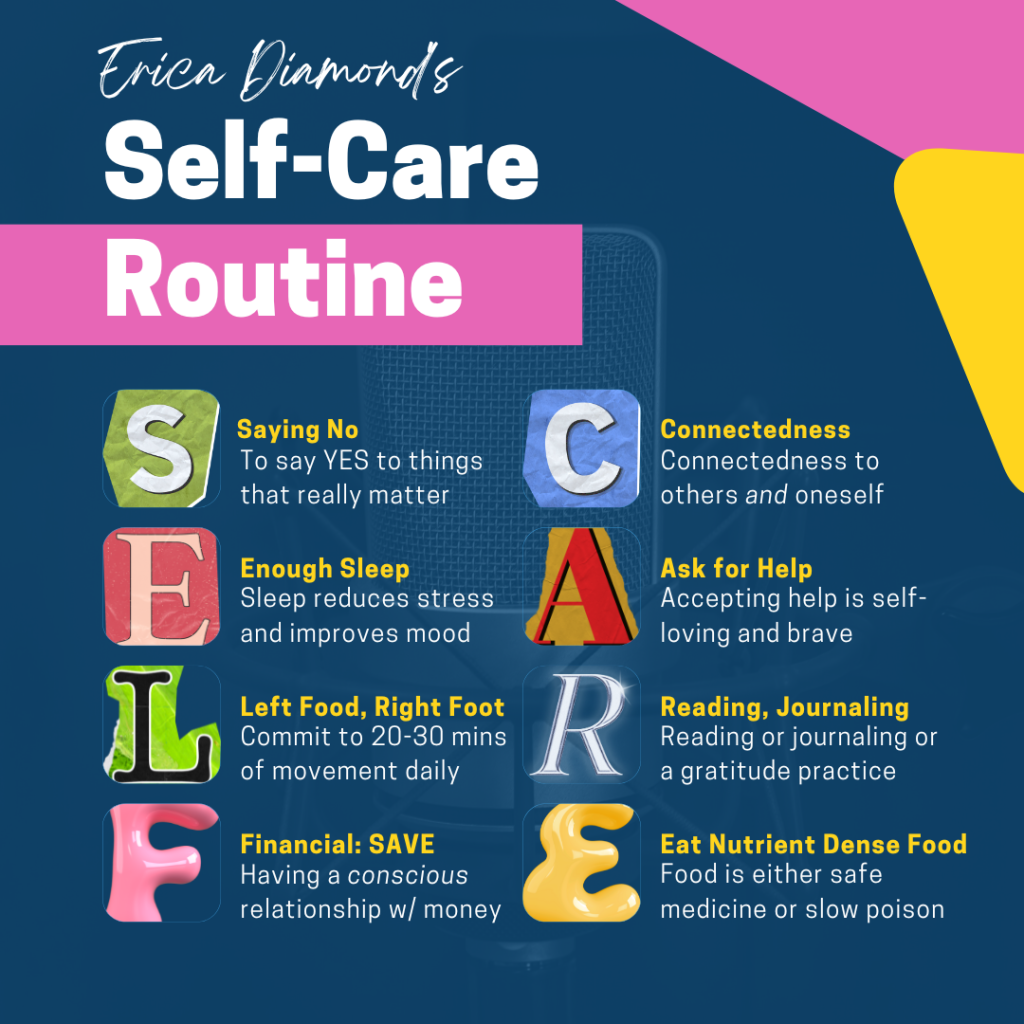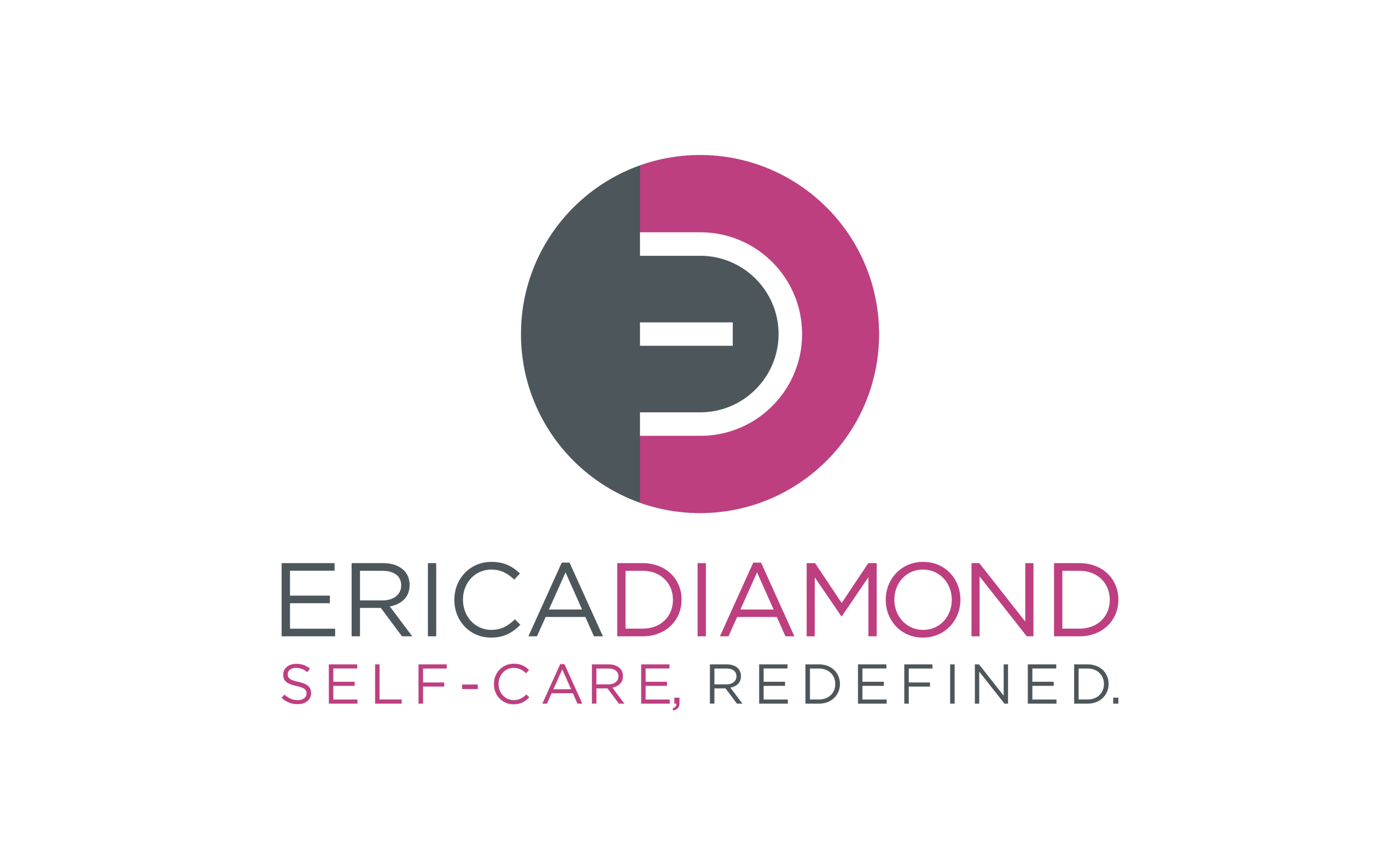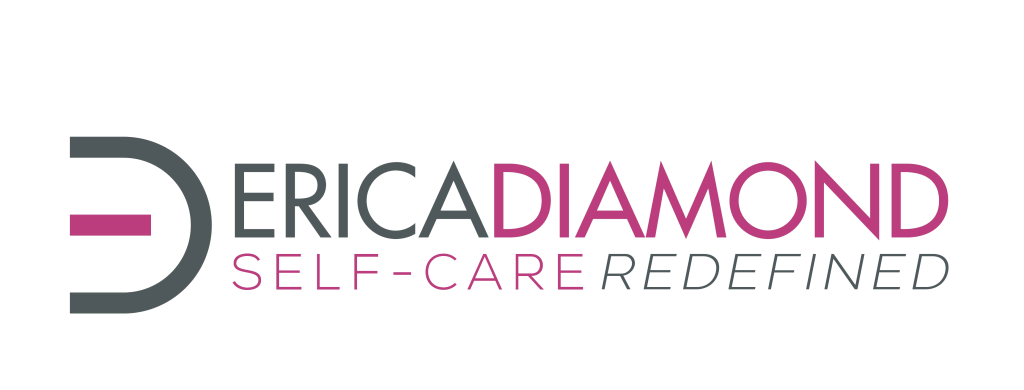
With Mental Health Awareness Month coming up soon in October, I am thrilled to share my personal SELF-CARE Routine with you.
These are 8 practices for incorporating self-care into your everyday life for mind and body wellness.
My prescription is 30-60 minutes a day of self-care activities.
SAYING NO
Saying NO more often allows you to say YES to things that really matter. How about. I’m sorry I can’t right now but I will let you know if or when I can,” or “The idea sounds amazing! It’s just that…” or “I’m not able to today. but in about a month. I can revisit it,” or “Let me think about it, and get back to you.”
ENOUGH SLEEP, LESS SCREENS
Restorative sleep is imperative to good health. Sleep reduces stress and improves mood. Adults aged 18-60 yrs are recommended to get 7 hrs of sleep nightly to promote optimal health. Charge phones outside the bedroom and avoid all screens at least 60 minutes before bedtime.
LEFT FOOT, RIGHT FOOT: MVMT
Commit to 30 minutes of movement daily if you can. Opt for whatever activities you enjoy most: walk, bike, run, swim, yoga, pilates, dance, HIIT, etc… Adults including seniors should accumulate at least 150 minutes of moderate to vigorous physical activity per week.
FINANCIAL SELF CARE: SAVE
Self-care means caring for and cleaning up your finances. It also means having a conscious relationship with money. Self-care means budgeting, paying your bills on time, completing your tax responsibilities on time, keeping your insurances up to date, and saving money wisely
CONNECTEDNESS
Social connectedness with others provides emotional support and a sense of belonging to help you thrive.
Connectedness with oneself through a regular practice of mindfulness/meditation/breathwork helps keep you calm & grounded. Both are crucial to overall health and wellbeing.
ASK FOR HELP
“I’ll do it all myself” is ultimately a lonely and ineffective way to live. Asking for and accepting help brings you closer to people around you and creates wonderful bonds.
Accepting help is productive, self-loving, intelligent, and brave. Help comes to those who have the courage to ask for.
READING, JOURNALING, GRATITUDE
Make a decision to live with intent. Incorporating reading, writing, journaling, and expressing gratitude are all effective self-care practices. Gratitude is strongly and consistently associated with greater happiness, more positive emotions, and better handling adversity.
EAT NUTRIENT-RICH FOOD
“The food you eat can be either the safest and most powerful form of medicine or the slowest form of poison.” – Ann Wigmore. Examples of nutrient-dense foods include leafy greens, whole grains, fruits such as berries and pomegranates, oily fish rich in omega-3 fatty acids, vegetables like mushrooms. sweet potatoes and be peppers
And there you have it!
If you’re ready to really start prioritizing self-care, join me in my Self-Care Masterclass for Busy Women!




